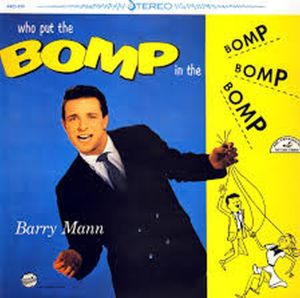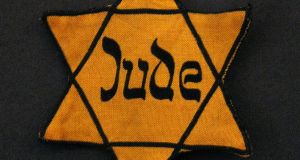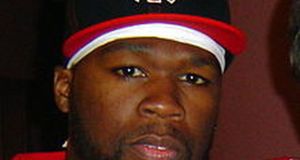“When I encounter that, I’m revved up like a douche.”
 Houston, June 27 – A survey of music consumers revealed this week that a solid majority believe the name of the monthlong Islamic practice of daytime fasting called Ramadan is mentioned in the 1961 doo-wop hit “Who Put the Bomp.”
Houston, June 27 – A survey of music consumers revealed this week that a solid majority believe the name of the monthlong Islamic practice of daytime fasting called Ramadan is mentioned in the 1961 doo-wop hit “Who Put the Bomp.”
The song, in which the singer describes how his significant other fell in love with him after hearing various nonsense phrases characteristic of doo-wop works, expresses the singer’s gratitude to the anonymous lyricist who compiled the various iconic phrases such as “shoo bop shoo bop” and “dip da dip da dip.” In the second line of the refrain the singer poses the rhetorical question, “Who put the ram in the rama lama ding dong?” However, seventy percent of the survey respondents claimed to hear “Ramadan” in that phrase, and about half of those who heard it also worried that the word’s presence in the song indicated a dangerous encroachment of Islam into American life.
The poll asked 550 Texas and Oklahoma residents to listen to the song as performed by Barry Mann in its original 1961 version, and then to answer whether they heard the word “Ramadan” in the relevant lyrics. 385 respondents answered in the affirmative, while 117 said they did not hear the word in the song. The remaining 48 were unable to decide what they had heard.
No pattern has emerged regarding what segments of the population were more likely to respond one way or the other. However, people who already knew the song and answered that they did hear the word “Ramadan” in it were more than twice as likely as others to react with anger at its occurrence and with disbelief that they had not noticed it the first time they heard the song – in some cases, as long ago as 1961. The song has been covered in various forms by many artists since then.
Misheard song lyrics are called Mondegreens, a term that itself illustrates the phenomenon. The last phrase of the lyric “they hath slain the Earl of Murray and Laid him on the green” was misconstrued as “Lady Mondegreen,” a term that was then applied to other instances. One of the most famous examples involves the Lord’s Prayer: instead of “hallowed be Thy name,” generations of schoolchildren have at first thought they were reciting, “Our Father Who art in Heaven, Harold be Thy name…” Other examples include Creedence Clearwater Revival’s “Bad Moon Rising,” in which legions of listeners have heard “there’s a bad moon on the rise” as “there’s a bathroom on the right.”
The discovery of the “new” Mondegreen does not itself illuminate very much about American culture, says Wiley Kisthisguy, who studies the phenomenon. “I’m more worried about the people who see it as a threat than anything else,” he explained. “People have been hearing the wrong thing ever since Francis Scott Key didn’t invent the word ‘dawnzerly’ in what became the American national anthem. The question isn’t what they hear, but why they hear it and how they react to that experience. When I encounter that, I’m blinded by the light – revved up like a douche.”
Please support our work through Patreon.




